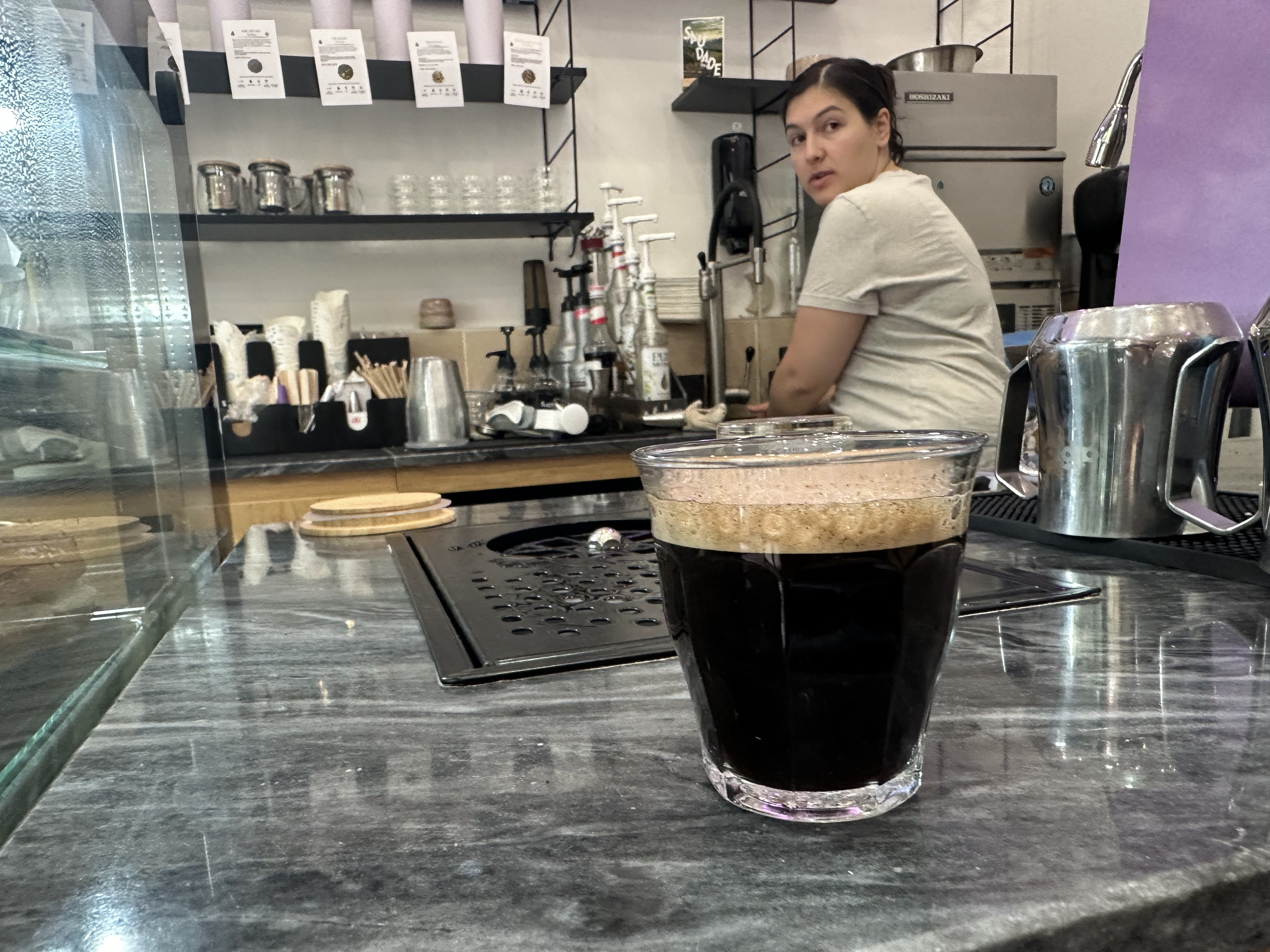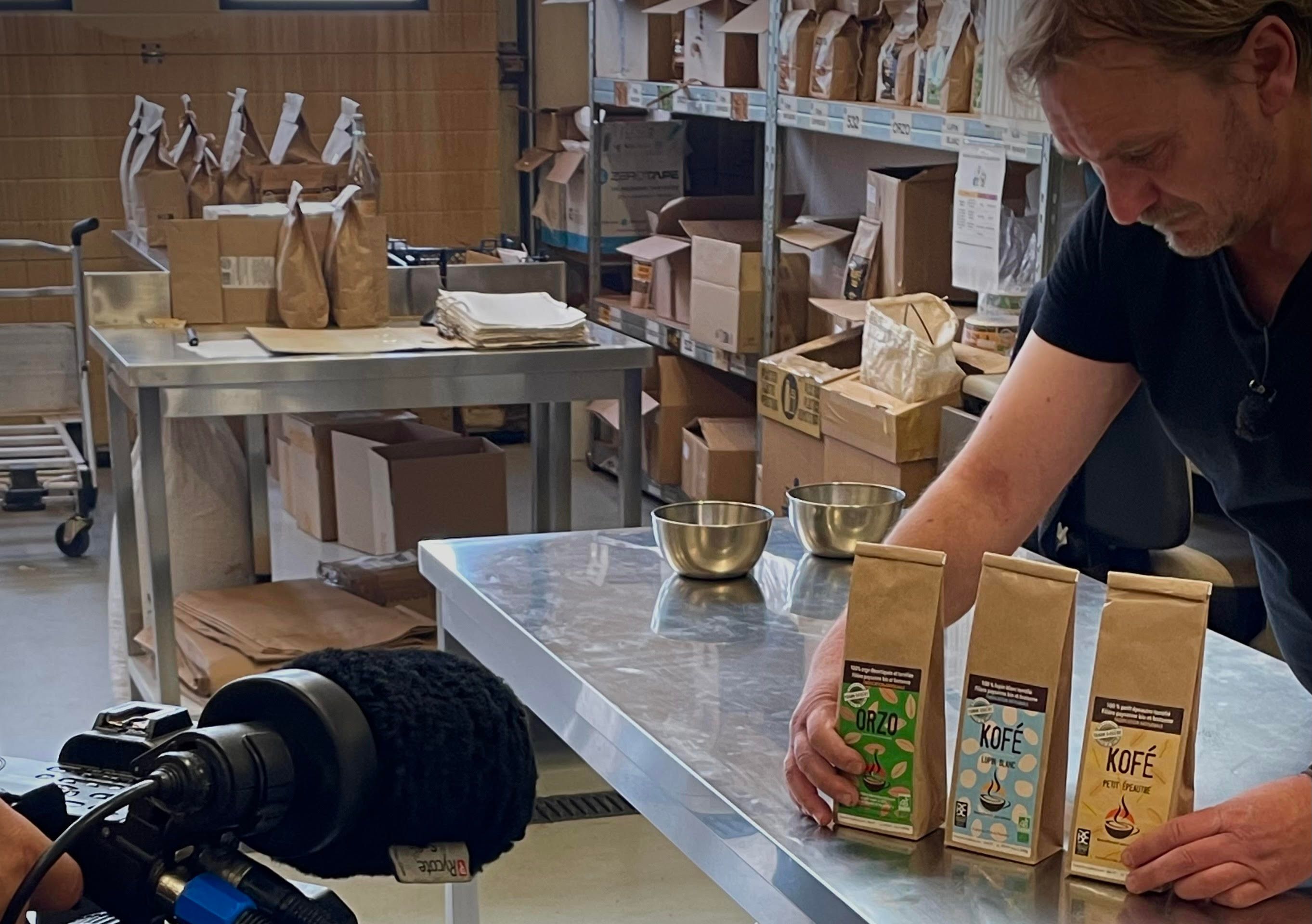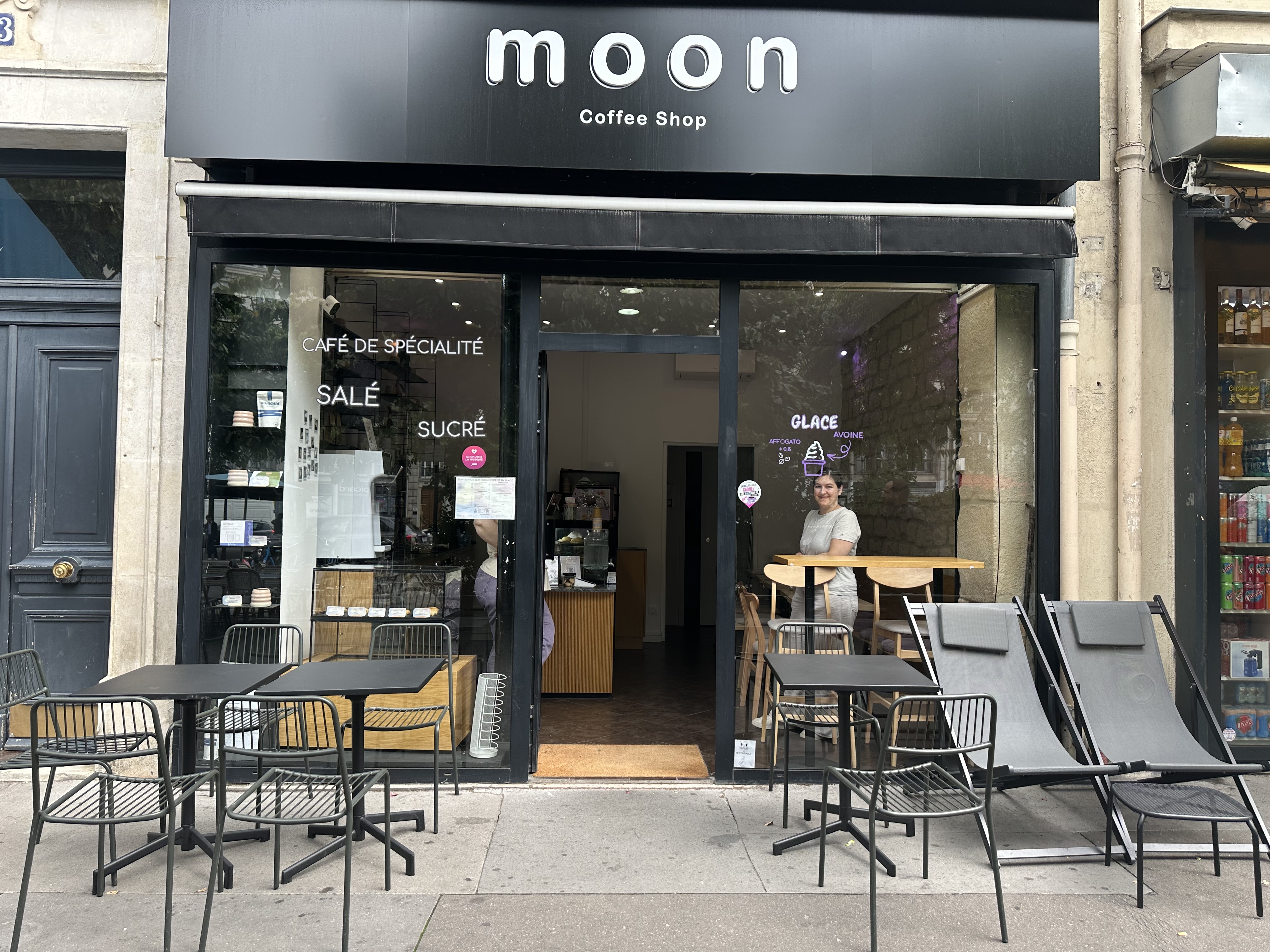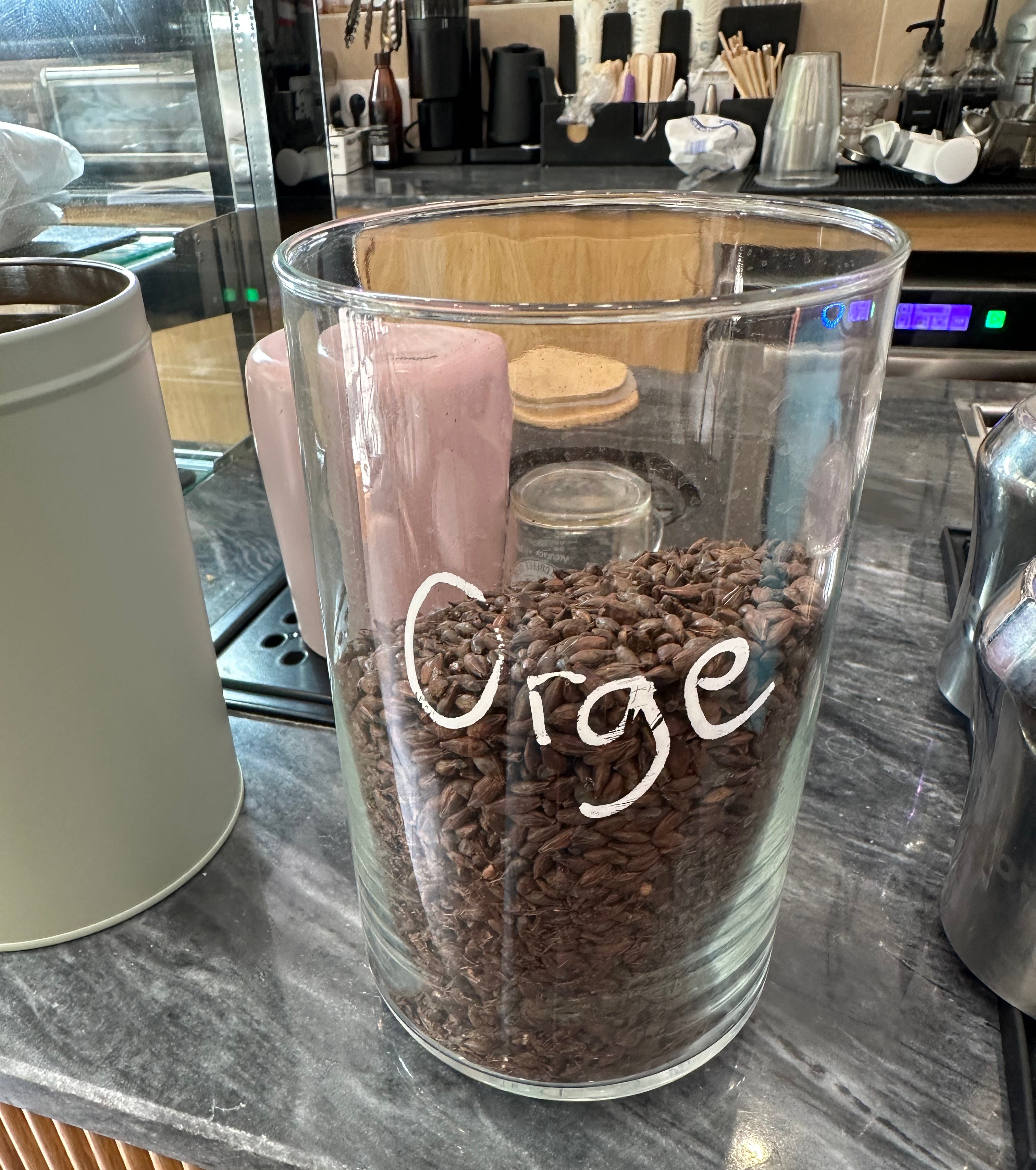History records that Voltaire, the 18th-century writer, was not generally irritable but he did experience mood swings, perhaps because of his habit of drinking up to 50 cups of coffee a day.
Today eight out of ten French people start the day with a coffee, usually black, and many also down several espressos — and some complain that it can make them tetchy or anxious.
Most French cafés also offer déca, or decaffeinated coffee, but now there is a lesser-known alternative, made by roasting cereals such as barley.
The grains, which look remarkably like coffee beans, are grown in Brittany. They can be ground and used in espresso machines or French press coffee-makers.
“A lot of our customers prefer barley coffee substitute to decaffeinated coffee, which usually contains solvents or is made with huge quantities of water, which is wasteful,” said Micaela Duarte, the owner of a fashionable café on a tree-lined boulevard in Paris’s 11th arrondissement. “I drank the coffee myself when I was pregnant and couldn’t handle real coffee. It satisfied my craving for a morning coffee with milk,” Duarte, 29, said.
To demonstrate, she made an espresso and a latte with Orzo, a coffee substitute made with barley, without additives. You might have expected it to taste like jus de chaussette, or “sock juice”, a colourful term for acrid coffee that smells sooty and leaves an ashtray aftertaste.
However, there was a pleasant surprise in the discovery of a flavour close to that of freshly ground coffee, with a softer aroma. Both the espresso and the latte were smooth-tasting, although neither provided the authentic coffee kick that Voltaire craved.

Micaela Duarte makes an espresso with Orzo, a barley coffee substitute that does not taste like “sock juice”
DAVID CHAZAN FOR THE TIMES

DAVID CHAZAN FOR THE TIMES
Yoann Gouéry, who produces the coffee substitute in Ploeuc-L’Hermitage in Brittany, said: “It’s not a booster. It won’t wake you up, but it does give you energy and you won’t feel tired in the afternoon. Like any cereal, it activates the intestinal flora and aids digestion.”
Graine de Breton, Gouéry’s small company, has a turnover of about €400,000 a year, producing 30 tonnes of various coffee substitutes using barley, spelt and buckwheat.
His products have been featured in national television news reports. A reporter on the TF1 channel swore off coffee for a month as an experiment and drank only Gouéry’s cereal substitutes. At the end of the month, clearly won over, he said he felt less tired.
However, Marie Lijour, a nutritionist, said it might not have been entirely because of the barley beverage. “Psychologically, it made him feel he was looking after himself and perhaps unconsciously he was more careful about what he ate and chose healthier foods.”

Yoann Gouéry owns Graine de Breton, based in Brittany
DAVID CHAZAN FOR THE TIMES
Gouéry said he got the idea for making coffee substitutes from an old recipe book. “We wanted to produce an alternative to coffee that’s healthy and locally sourced.”
He roasts barley for about an hour in a large coffee roaster: “I’ll go up to more than 230C until I get the colour I want.”

Grains get the coffee bean treatment
DAVID CHAZAN FOR THE TIMES
For now, he sells to a niche market. Few traditional French cafés are interested and his customers are either individuals or modern coffee bars that have sprung up in the past decade, catering mainly for young professionals and tourists who prefer to avoid the petit noir, or short black, on offer at the corner café.
The French love affair with coffee began after Suleyman Aga, the Ottoman ambassador to the court of Louis XIV, the Sun King, brought it to France in 1669.
• Roquefort makers kick up a stink over ‘unhealthy’ tag in France’s food labelling policy
Café culture took root in Paris during the Age of Enlightenment, when Voltaire gathered with other writers and philosophers at the Café Procope on the Left Bank. Yet the coffee served in Parisian cafés today is of variable quality.
Too often, an espresso, which is what most French people prefer, is a bitter shot that many locals render drinkable by dropping in a couple of sugar cubes. Milk may soften the bitterness, but cannot hide it completely.
Duarte’s Moon Coffee Shop, which is highly rated in the prestigious Gault & Millau guide, is part of the new wave.
“We get a lot of people coming in who want to avoid caffeine, and when we suggest the barley drink, they’re often sceptical,” Duarte said. “We tell them, just try it, and if you don’t like it, you don’t have to pay. So far, everyone has paid and we have some customers who always order it.”

DAVID CHAZAN FOR THE TIMES
Chicory is another option but “we didn’t like the taste as much and it can’t be ground and used in an espresso machine”, Duarte said.
Gouéry’s coffee substitutes are also available in supermarkets with organic counters. At Biocoop, near Place de la République in central Paris, I found several devotees, but also a few sceptics.
“I love this stuff,” said Micheline, 32, a lawyer, who bought a packet of a multiple-grain blend of barley, malted barley and spelt also produced by Gouéry. “I can drink as much as I like and it doesn’t make me tense like coffee does, but the flavour is close.”
Patrick, her partner, was less enthusiastic. “The barley drink doesn’t do it for me. If you like the taste of coffee, just drink real coffee but don’t overdo it.”

Not everyone wants cereal in a coffee cup
DAVID CHAZAN FOR THE TIMES
Perhaps Voltaire deserves the final word. It has often been said that his doctor once warned him that coffee was a poison. He supposedly replied: “It is a remarkably slow poison. I have been drinking it every day for more than 75 years.”
A word of caution, however: this same response has also been attributed to another French writer, Bernard Le Bouyer de Fontenelle.
